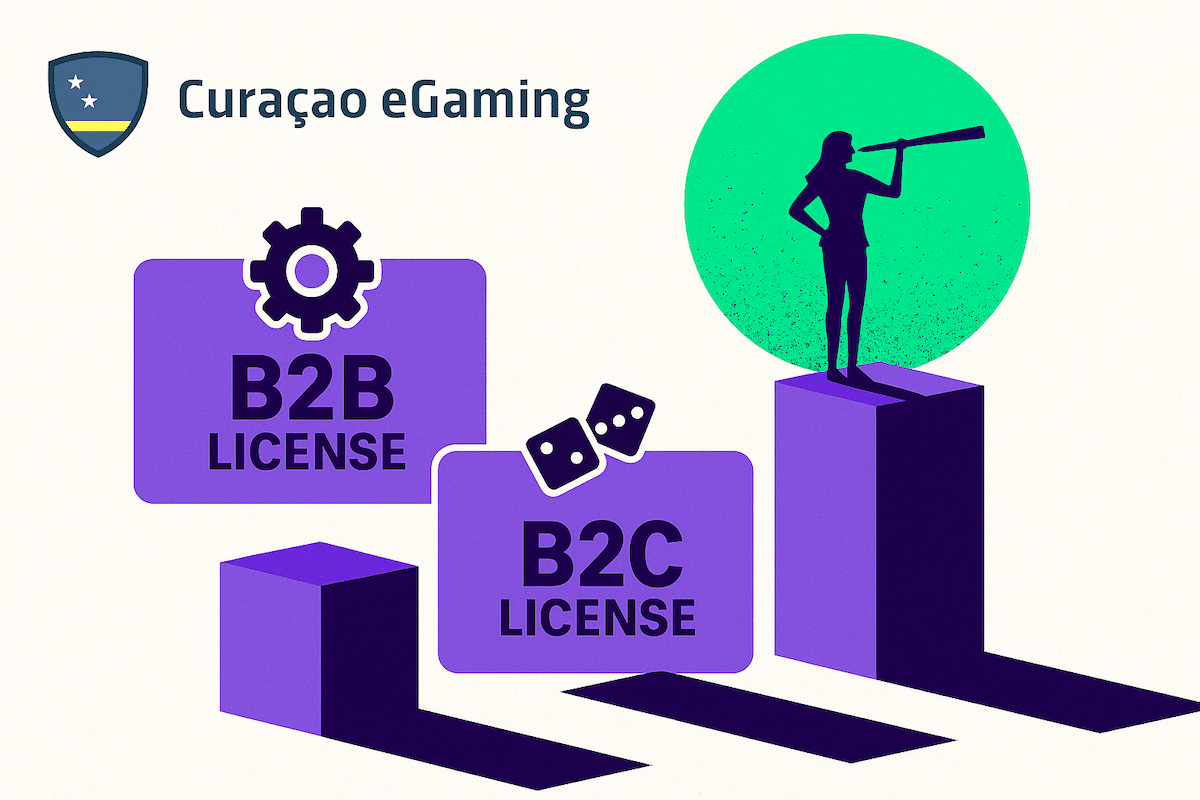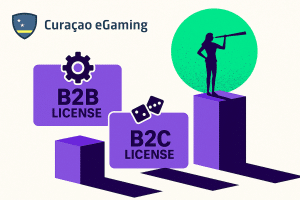Join Our Telegram channel to stay up to date on breaking news coverage
For decades, Curaçao was known as one of the most accessible jurisdictions in the world for online gambling operators, but with that accessibility came criticism.
The island’s legacy licensing model, based on a system of master licenses and sub-licenses, was often seen as lacking transparency, oversight, and accountability. That perception made it harder for Curaçao-licensed operators to gain trust with banks, regulators, and even players in key markets.
That is now changing. In December 2024, Curaçao implemented the National Ordinance for Games of Chance (LOK), effectively replacing its outdated licensing system. The newly empowered Curaçao Gaming Control Board (CGCB) has been tasked with enforcing this legislative overhaul, which introduces a centralized licensing framework and mandates significantly higher compliance standards. The result is a shift from a permissive offshore model to a modern regulatory structure designed to align with global best practices.
Key Takeaways
- Curaçao eliminated its master/sub-license structure in 2024, replacing it with B2B and B2C licenses.
- All licensing is now administered by the Curaçao Gaming Control Board (CGCB).
- Operators must establish a local company, office, and hire resident employees.
- The new system enforces AML/KYC rules aligned with EU directives.
- More than 220 provisional licenses have been issued, with 600 expected by early 2026.
- Crypto transactions are allowed but face strict scrutiny.
A New Regulatory Backbone: From NOOGH to LOK
The old system, governed under the National Ordinance on Offshore Games of Hazard (NOOGH), allowed a handful of master licensees to issue sub-licenses to thousands of operators. These sub-licensees had no direct accountability to the government and often operated with minimal oversight. That framework was formally dissolved when the new legislation, LOK, came into effect in late 2024.
Under LOK, the CGCB is now the sole regulatory authority. All operators, whether B2B providers or B2C platforms, must apply directly for licenses. This eliminates the ambiguous and often opaque relationships that plagued the previous system.
According to the CGCB’s official licensing portal, operators must now go through a standardized and transparent application process. This includes disclosing ultimate beneficial owners (UBOs), business plans, AML policies, and financial data.
The New Licensing Structure
Here’s how the new framework will work:
B2C License
Targeted at operators offering services directly to consumers, including online casinos, sportsbooks, and live dealer platforms.
B2B License
Reserved for service providers such as platform developers, game studios, and payment processors.
Certifications
Special certifications are also available for affiliate networks, charity-based gaming providers, and white-label platforms.
The CGCB has launched a centralized online application portal that allows operators to track the progress of their submissions, upload documentation, and correspond with regulators in real time.
Compliance Requirements and Local Presence
Curaçao’s new framework requires all licensed entities to establish a meaningful physical presence on the island. This includes:
- Creating a locally registered company.
- Hosting servers physically located in Curaçao.
- Hiring at least two residents in key roles within the first two years, increasing to four by year five.
- Establishing a registered office that houses core operations.
These measures are designed to ensure that operators are genuinely accountable under Curaçaoan jurisdiction and are not simply using the island as a flag of convenience.
AML, KYC, and Crypto Oversight
A major feature of the reform is the implementation of AML and KYC measures aligned with European standards. According to guidelines published by Advennt, the key requirements include:
- Conducting Customer Due Diligence (CDD) for all transactions over €2,500.
- Enhanced due diligence for crypto-related activities.
- Mandatory sanctions screening against EU, UN, and US watchlists.
- Appointing a qualified AML officer to maintain internal compliance.
These enhancements aim to bring Curaçao in line with jurisdictions like Malta and Gibraltar while still maintaining its appeal to crypto-friendly platforms
Financial and Operational Reporting
The CGCB mandates ongoing reporting and disclosure obligations, including:
- Real-time transaction monitoring.
- Monthly financial summaries.
- Immediate reporting of suspicious activities or account anomalies.
- Full transparency of player balances and bonus liabilities.
Curaçao continues to offer a competitive 2% corporate tax rate on net profits, but operators must now provide detailed documentation to remain compliant. Non-compliance can result in license suspension or revocation.
Transitional Licensing and Timelines
To ease the transition, existing sub-licensees were granted provisional licenses valid until June 24, 2025. These can be extended for an additional six months if the operator demonstrates active progress toward full compliance. As of Q2 2025, over 220 licenses have been provisionally approved, with expectations to reach 600 by early 2026, according to iGaming Business.
The new licensing roadmap involves three key steps:
- Registering a local entity.
- Submitting detailed application documentation.
- Undergoing a review process, typically lasting 8–12 weeks.
Comparing Curaçao to Tier-One Jurisdictions
Criteria
Curaçao (2025)
Malta (MGA)
Gibraltar
Licensing Type
B2B & B2C
B2B & B2C
B2B & B2C
Licensing Fees
€4,592–€45,000
€25,000–€50,000
£50,000–£100,000
Corporate Tax
2% net profits
5% GGR
1% turnover
Physical Presence
Mandatory
Mandatory
Mandatory
Crypto Transactions
Permitted w/ oversight
Permitted
Limited
AML Compliance
EU-aligned
EU-compliant
UK-aligned
Curaçao’s newly aligned standards put it on firmer footing with these long-established regulators, while its costs remain relatively affordable
Outlook: A Rebirth for Curaçao’s iGaming Sector
Curaçao is no longer just the budget licensing destination for offshore operators or crypto casinos. With its sweeping changes, the island is positioning itself as a serious player in the regulated iGaming market. The rewards for operators willing to make the necessary compliance investments include increased legitimacy, smoother banking relationships, and broader market access.
This overhaul will undoubtedly push out non-compliant operators, but it represents an opportunity to anchor their operations in a newly respected regulatory hub for others. The CGCB’s continued commitment to transparent governance will ensure this transition fulfills its promise.
As the industry evolves, Curaçao’s journey from loophole to leader might become a case study in rebooting a national regulatory framework correctly.
Join Our Telegram channel to stay up to date on breaking news coverage


